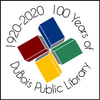Summer Slide Prevention
Summer is coming. For many elementary and secondary students across the state, it signifies ball games, pools, family vacations, and that longed-for break from school work. But, did you know that a complete separation from activities such as reading and writing could have negative effects on a child’s education?
Summer setback, also known as “summer slide” or “summer learning loss,” occurs when children lose academic skills during the summertime, when they are most often out of practice. The setback is often steeper for low-income children than children from middle and high income households and for children who do not have easy access to books. The National Summer Learning Association highlights that “Most students lose about two months of grade level equivalency in mathematical computation skills over the summer months. Low-income students also lose more than two months in reading achievement.” Students’ test scores are lower when they return to a new school year, forcing teachers to spend an average of 4-6 weeks reteaching forgotten material learned from the previous year.
The effects of summer setback accumulate from year to year, leading to lower proficiency levels in the long run, as seen by over 100 years’ worth of studies focused on this topic. Johns Hopkins School of Education notes research stating that “two-thirds of the ninth grade reading achievement gap can be explained by unequal access to summer learning opportunities during the elementary school years.” Students with unequal or nonexistent access to educational opportunities over the summer are less likely to graduate high school on time or even enter college.
Summer setback, also known as “summer slide” or “summer learning loss,” occurs when children lose academic skills during the summertime, when they are most often out of practice. The setback is often steeper for low-income children than children from middle and high income households and for children who do not have easy access to books. The National Summer Learning Association highlights that “Most students lose about two months of grade level equivalency in mathematical computation skills over the summer months. Low-income students also lose more than two months in reading achievement.” Students’ test scores are lower when they return to a new school year, forcing teachers to spend an average of 4-6 weeks reteaching forgotten material learned from the previous year.
The effects of summer setback accumulate from year to year, leading to lower proficiency levels in the long run, as seen by over 100 years’ worth of studies focused on this topic. Johns Hopkins School of Education notes research stating that “two-thirds of the ninth grade reading achievement gap can be explained by unequal access to summer learning opportunities during the elementary school years.” Students with unequal or nonexistent access to educational opportunities over the summer are less likely to graduate high school on time or even enter college.
So, how can we combat summer setback and help our children reach their highest achievements?
Play games:
To-Go Packs:
Converse:
|
Take advantage of opportunities in the community:
Make fun books accessible:
|
Libraries across Pennsylvania are working together with the Pennsylvania Library Association (PaLA) to move PA Forward and ensure that libraries take their rightful place as leaders of a vision that requires a unique combination of new technology, community access, and commitment to learning. Libraries are key to powering progress and elevating the quality of life in Pennsylvania by fueling the types of knowledge essential to success: Basic Literacy, Information Literacy, Civic and Social Literacy, Health Literacy, and Financial Literacy. At PaLA we envision a Pennsylvania where citizens know how to use online resources and current technology to improve their education, to enhance their job skills, and to fully participate in a digital society. Find out more at http://www.paforward.org/ or https://www.facebook.com/paforward
Resources
- National Summer Learning Association: http://www.summerlearning.org/
- ALA, Summer Library Reading Programs: http://www.ala.org/tools/libfactsheets/alalibraryfactsheet17
- Florida Education Association, Stop the Summer Slide and Brain Drain: https://feaweb.org/stop-the-summer-slide
- Homeroom: The Official Blog of the U.S. Department of Education, Stopping the Summer Slide: http://blog.ed.gov/2014/03/stopping-the-summer-slide/
- US News, Stop the Summer Slide: http://www.usnews.com/opinion/knowledge-bank/2015/06/16/summer-slide-is-bad-for-students
- Colorado State Library: http://www.cde.state.co.us/cdelib/summerslide
- ASCD (formerly Association for Supervision and Curriculum Development): http://www.ascd.org/publications/educational-leadership/dec11/vol69/num04/Slowing-the-Summer-Slide.aspx
- Collaborative Summer Library Program: http://www.cslpreads.org/
- Bedtime Math: http://bedtimemath.org/summer-of-numbers/
- Library As an Incubator Project: http://www.libraryasincubatorproject.org/?p=10658
